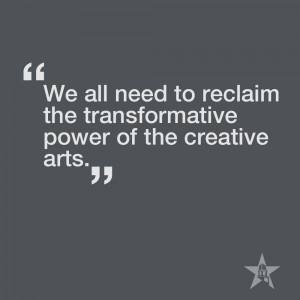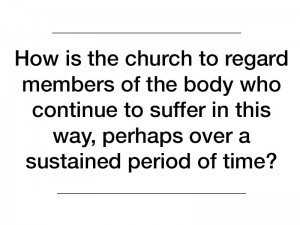The 2014 Houghton Reads book is Culture Making: Rediscovering Our Creative Calling, by Andy Crouch, the Executive Editor of Christianity Today. This book is being read by many groups around campus. Overall, it is not a bad book (yes, I have read the whole thing).
Crouch presents his case that Christians should be “makers of culture.” I could not agree more. Christians are to be a community, united in love, forming a counter-culture that displays the radical love, grace, and forgiveness of Jesus. This culture we are making together, and are to invite others into, is the Kingdom of God. But it is not this idea of culture making that I’ve got a problem with. No, my problem is with the real-life way that Crouch tried to “make culture” this summer.
In the book, Crouch talks about four postures that American Christians have taken in regard to culture. These are: Condemning (think of a fundamentalist who rants about the evils of culture while keeping a safe distance), Critiquing (a Christian who engages with culture for the sake of pointing out its flaws), Copying (picture the way Contemporary Christian Music took the form and style of secular music and inserted God into it), and finally Consuming (leaving God out of the picture and embracing the secular as default). He goes on to say that rather than embracing one of these four postures, Christians should “make culture” instead. No problem here. I agree that Christians have, far too often, engaged in one of these postures instead of being the countercultural Kingdom of God. So how do we make this culture?
 According to Crouch, if we want to change/make a culture, we must start small. He says that we make culture by creating cultural “goods.” These can be things like songs, books, legislation, computers, etc. A cultural good is anything we create that has the potential to change the culture around us. Again, no problem here. We all need to reclaim the transformative power of creative acts. If we see the smallest things we do as a part of making our culture and world a better place, we will find our lives invested with meaning like never before. Now onto what Crouch did this summer.
According to Crouch, if we want to change/make a culture, we must start small. He says that we make culture by creating cultural “goods.” These can be things like songs, books, legislation, computers, etc. A cultural good is anything we create that has the potential to change the culture around us. Again, no problem here. We all need to reclaim the transformative power of creative acts. If we see the smallest things we do as a part of making our culture and world a better place, we will find our lives invested with meaning like never before. Now onto what Crouch did this summer.
On July 1st of this year, Andy Crouch, along with 13 other Christian leaders, signed and sent a letter to President Obama. The President had announced that he planned to make an Executive Order banning all federal contractors from discriminating against potential employees based on their sexual orientation. The letter asked the President to exempt religious organizations from this order. Or, to put it bluntly, these leaders want permission for their organizations to legally discriminate against a portion of Americans. They want to remain in contract with the federal government, which means keeping all of the money that goes along with that, but be permitted to discriminate based on certain people’s sexual orientation. This is where I have a big problem with the way in which Crouch wants to make culture.
In his attempt to “make culture” Crouch introduces a “cultural good” in the form of a letter. His idea of making culture is to create a world where it is legal to discriminate and reject certain members of society, not because these people are criminals or harmful to others, but because of who they choose to love (and make love to).
As I’ve already said, I’m all for making culture. The Christian story invites us to become a part of a community that shares the love, grace, and forgiveness of God with others; but I’m not for a culture that is accepting of discrimination. I don’t see room for discrimination in the loving, graceful, forgiving way of Jesus.


